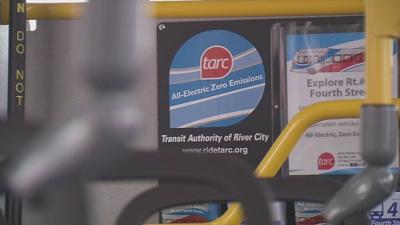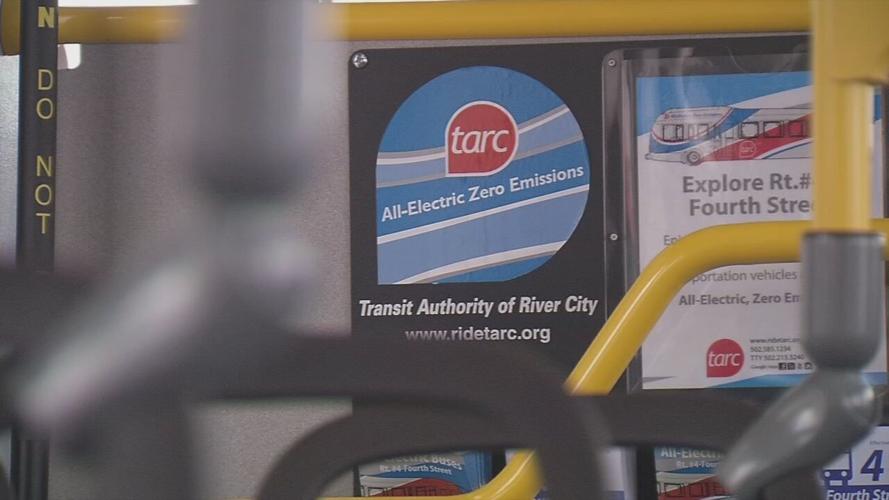LOUISVILLE, Ky. (WDRB) -- From his TARC stop at Broadway and 10th street to GE Building No. 5, Lanice Malone Jr. said it takes 45 minutes to get to work each day on the bus. Friday was even worse.
"This bus is already late, so I'm probably going to get to work late," Malone said Friday.
But it's not the late bus that bothered him most Friday. It was the buses he no longer sees on the road.
Louisville is one of several cities that purchased first-generation Proterra electric buses, but TARC later idled the fleet. It spent $9 million on nine electric buses, and they haven't moved in more than two years.
"That just sucks," Malone said while looking at pictures of the buses parked in a TARC garage. "Sitting, and you can literally tell with all the dust."
Carrie Butler, executive director of TARC said the buses can only work on shorter distances with charging stations located mid-route. So they couldn't be placed in service in other places. Also, the cleaner, greener models had mechanical issues.
"The route those buses were on — the Lou Lift route — was suspended during COVID, when downtown employees shifted to remote work," she said. "Any time there's a new technology in that first generation, we will see some problems."
Louisville joins several cities — including Philadelphia, Pennsylvania, Reno, Nevada, and Stockton, California — that purchased early-model Proterra electric buses and later idled the fleet.
In a written statement Friday, Proterra said, "With every first-generation technology, performance challenges and bumps in the road are expected and we work diligently with our customers to help resolve issues as they arise."
The union representing the agency's bus drivers and maintenance workers said it goes beyond manufacturing.
"When you purchase buses and you don't factor in the training and safety and the cost of parts, that is the problem," said Lillian Brents, president of ATU Local 1447, which represents rank-and-file TARC workers.
The news of TARC's parked electric bus fleet comes amid contentious contract negotiations. TARC and the union are at odds over wages, working conditions and other considerations. As part of a negotiation this week, TARC said it made a verbal offer to the union that included "a commitment to jointly explore additional long-term operational funding needed for TARC to maintain a strong workforce and expand service, which may include a ballot referendum for the community to decide."
"Operationally, things are not good with TARC right now," Metro Council President David James said.
Currently, every paycheck for work performed in Jefferson County is taxed at 0.2% for TARC, a rate that has hasn't changed since the agency was created in 1974.
"I think we're an excellent steward of taxpayer dollars," Butler said. "We've been able to survive on a 50-year-old tax referendum."
In 2021, that percentage generated nearly $64 million.
"I haven't heard a reason TARC should have a tax hike yet ..." James said. "They told me — in order to improve service — they would need more funds. But I have not seen a plan for that."
Malone said his service is not good enough to support a tax increase. On Friday his bus was so late he ended up taking an Uber to work.
Copyright 2022 WDRB Media. All Rights Reserved.














